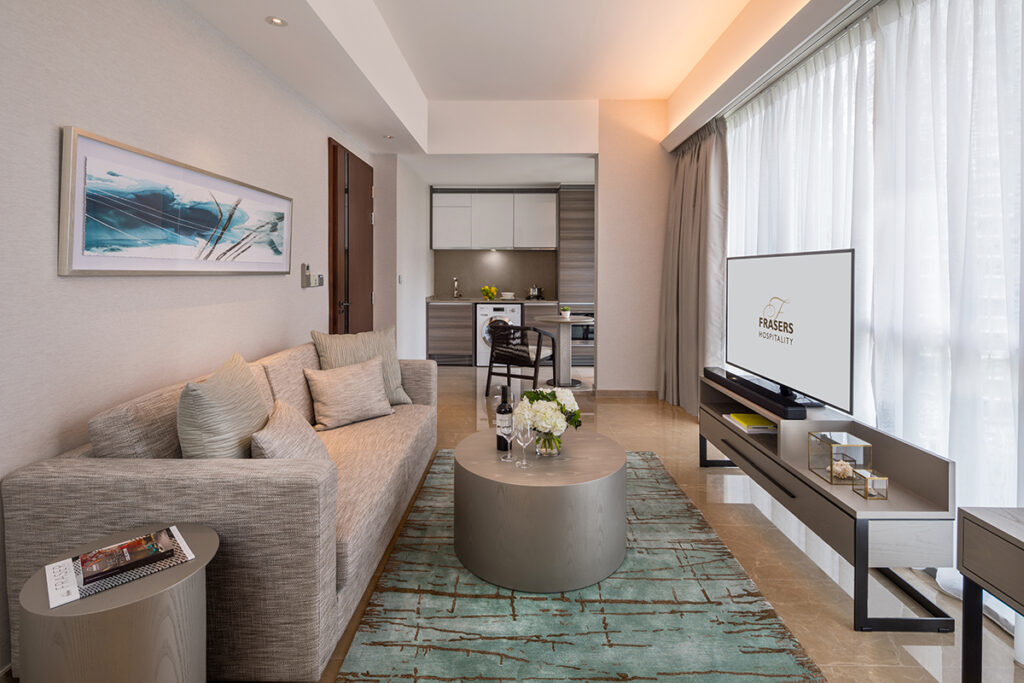Table of Contents

Singapore government is piloting Service Apartment in Singapore with 3 months stay rule. Currently, serviced apartments in the city-state mandate a minimum stay of seven days. The Urban Redevelopment Authority (URA) defines serviced apartments as self-contained living spaces equipped with kitchenettes or kitchens, complemented by support services like concierge, communal dining areas, housekeeping, and laundry facilities.
Impact of new “Service Apartment in Singapore with 3 months stay rule”
The introduction of the new serviced apartments is expected to have a number of impacts on the Singapore rental market. It is likely to increase the supply of rental accommodation, which could help to moderate rental prices. It could also make it easier for long-term stayers to find suitable accommodation.
However, the new serviced apartments are also likely to be more expensive than traditional serviced apartments. This could make them unaffordable for some long-term stayers.
Overall, the introduction of the new serviced apartments is a positive move that is likely to benefit the Singapore rental market. However, it is important to ensure that the new serviced apartments are affordable for long-term stayers.
The minimum stay rule is intended to prevent the new service apartment in Singapore from being used for short-term rentals, such as Airbnb. The government is concerned that short-term rentals are driving up rental prices and making it difficult for Singaporeans to find affordable housing.
Potential benefits of changing the rule
- Increased flexibility for tenants: Allowing shorter minimum stays would give tenants more flexibility in choosing their accommodation, particularly those who are unsure of the duration of their stay in Singapore. This could be beneficial for individuals with temporary work assignments, project-based employment, or those considering relocation to Singapore.
- Greater diversity in rental options: A wider range of minimum stay options would cater to a broader spectrum of tenant needs and preferences. This could attract a wider pool of potential tenants, including those seeking shorter-term accommodation while still enjoying the amenities and services offered by serviced apartments.
- Reduced pressure on short-term rental market: By providing more flexible serviced apartment options, the need for short-term rental platforms like Airbnb could potentially decrease. This could mitigate concerns about the impact of short-term rentals on the residential character of neighborhoods and the availability of affordable housing for Singaporeans.
When new rule will be implemented
National Development Minister Desmond Lee on Nov 29 announced that the government will pilot service apartment in Singapore with a three-month minimum stay period to ensure that demand for longer-term stays can be met.
Two sites in Upper Thomson and Zion Road will be launched in early December under the second-half 2023 Government Land Sales confirmed list, he said at the Real Estate Developers’ Association of Singapore’s 64th anniversary dinner held at Orchard Hotel.
The exact date when the new rule will be fully implemented across Singapore has not yet been announced. However, the government has indicated that it will monitor the pilot carefully and make a decision about full implementation once it has gathered sufficient data.
Considerations for potential changes
- Addressing potential Disamenities: Careful consideration should be given to the potential Disamenities that shorter minimum stays could cause for neighboring residents. This could include increased noise levels, higher foot traffic, or potential disruptions to the overall tranquility of residential areas.
- Balancing flexibility with affordability: While offering greater flexibility for tenants, it is crucial to ensure that shorter minimum stays do not lead to a significant increase in rental rates. The government should closely monitor the impact of any changes on rental affordability.
- Maintaining regulatory oversight: Clear guidelines and regulations would be necessary to ensure that serviced apartments with shorter minimum stays are not used for unauthorized purposes, such as illegal short-term rentals or commercial activities.
Additional information
- The minimum stay rule for service apartment in Singapore is currently seven days.
- There is a shortage of rental accommodation in Singapore.
- The government is taking a number of measures to address the shortage of rental accommodation, including increasing the supply of public housing and introducing new housing schemes.
- Revised Locational Criteria for Serviced Apartments (ura.gov.sg)
- Responsible hosting in Singapore – Airbnb Help Centre
for more such articles visit infothere.com